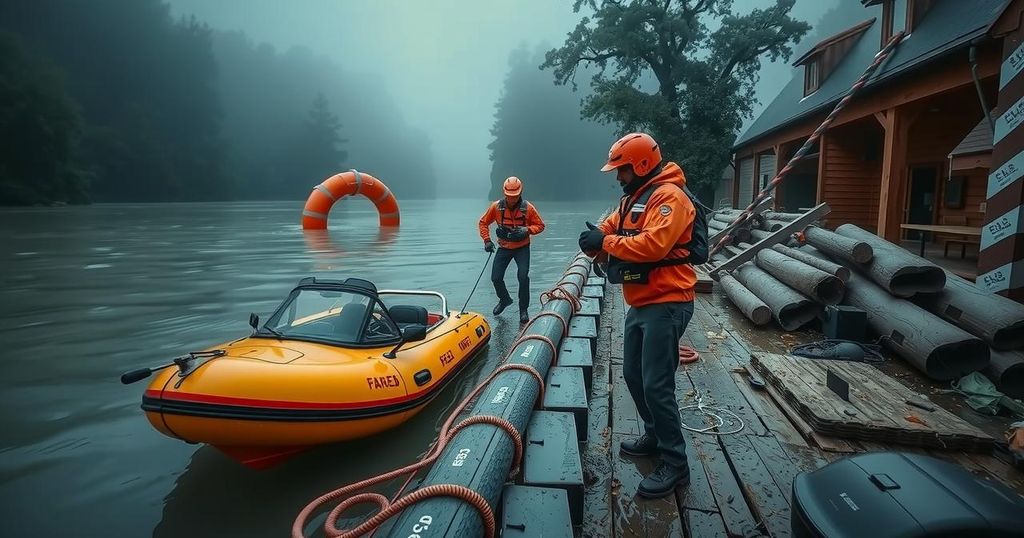Spain is grappling with the aftermath of significant flooding, which has resulted in at least 95 confirmed fatalities. Rescue operations are ongoing, with many individuals still unaccounted for, prompting a national response to address the devastation across affected regions. Concerns regarding the effectiveness of emergency warnings and the impacts of climate change are underscored by this catastrophic event.
Following the most devastating natural disaster of the twenty-first century in Spain, search teams have intensified efforts to locate victims after catastrophic flooding has resulted in a confirmed loss of at least 95 lives. The tragic impact of the floods has led officials to warn that the death toll might escalate, as numerous individuals remain unaccounted for amid the wreckage left in towns like Valencia and surrounding neighborhoods, which have been seriously affected. In the town of Barrio de la Torre, images of destruction echo those typically seen after hurricanes or tsunamis; cars have been jumbled together, household items are submerged in mud, and debris covers the streets. “The neighborhood is destroyed, all the cars are on top of each other, it’s literally smashed up,” lamented Christian Viena, a local bar owner. Rescue operations involving over a thousand military personnel are ongoing, as joint efforts between emergency services aim to recover bodies and assist any survivors. Although helicopters have carried out some rescues—saving approximately 70 people—the ground teams are scouring through debris, inspecting homes and vehicles impacted by the floods. According to military officials, 22 bodies had been recovered by late Wednesday. Spain’s Prime Minister Pedro Sánchez plans to visit the affected areas as the nation enters a three-day official mourning period for the victims. Meanwhile, many residents have been deprived of water and electricity, and roads remain partially inaccessible, complicating rescue and recovery operations. Although the flooding is a recurring event along Spain’s Mediterranean coast, the sheer magnitude of this episode has caught many off guard, prompting discussions regarding the adequacy of flood warnings issued to the public. In light of this disaster, a broader conversation has emerged around climate change and its increasing role in severe weather events, fueling concerns among both authorities and citizens.
This article addresses the severe flooding in Spain, termed the worst natural disaster of this century, which has seen at least 95 individuals confirmed dead. The flooding resulted from intense rain, leading to flash flood conditions that devastated areas such as Valencia and Méditerranée. The impact has not only caused loss of life but also widespread destruction of infrastructure, leaving thousands without essential services and necessitating extensive rescue operations. Amidst criticisms regarding the timely dissemination of flood warnings, experts are connecting the severity of this event to climate change and its influence on weather patterns.
In summary, the tragic events following the unprecedented flooding in Spain have resulted in significant loss of life and considerable damage to communities. As rescue efforts continue, concerns are being raised regarding the effectiveness of emergency responses and the implications of climate change on such catastrophic weather events. This disaster calls for immediate attention to disaster preparedness and climate resilience strategies to mitigate the effects of future extreme weather incidents.
Original Source: apnews.com







